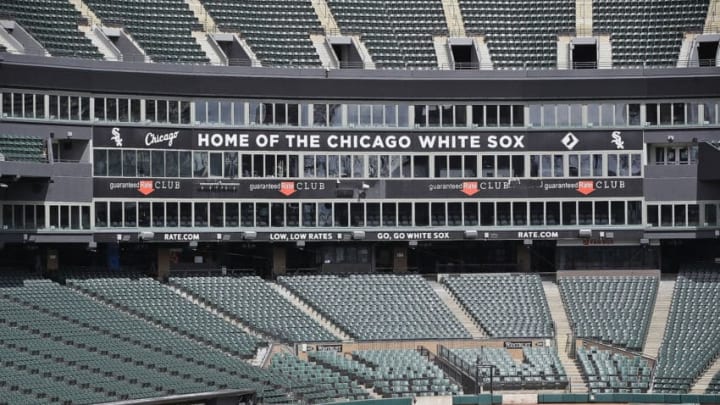MLB could dominate airwaves if they’re the first league to come back. The owners and players, though, are wasting that opportunity and a chance to grow the game with 2020 season.
Fans across North America are starving for sports right now. The signs are everywhere. The Match on Sunday attracted 5.8 million viewers, the highest-rated cable golf broadcast in history. The Last Dance, the part-documentary, part-career celebration of Michael Jordan, averaged 5.6 million viewers across 10 episodes, making it the most-watched documentary ever on ESPN. UFC 249, the first major sporting event on American soil in nearly two months, gained 700,000 pay-per-view buys, a figure exceeded by only two other events since 2018.
Leagues are scrambling to capitalize on this thirst for live sports. The NBA is mulling a 16-game playoff. On Tuesday, NHL commissioner Gary Bettman made an announcement that the league will return with a 24-team playoff at some point, likely in August.
Major League Baseball, though, still seems nearly as far from starting their season as they did back in March when the entire sports world was put on hold due to the COVID-19 pandemic. On Tuesday, at the same time Bettman was holding his conference, news began filtering out that the MLB Players Association was rejecting the owners’ latest offer.
The two sides remain at an impasse that doesn’t seem like it’s going to end soon. And if the league hopes to return by the Fourth of July holiday, the deadline to reach a deal is less than two weeks away.
It would be a big missed opportunity if they don’t.
Baseball had a chance to be the first major sport to return during the pandemic (though the NWSL announced plans Tuesday for a June 27 return).
Television ratings would be huge. The goodwill garnered by the league might inspire a new generation of fans who have been flocking away from the game; just 25 percent of people aged 21-34 in a 2018 Nielsen survey said they were a fan of baseball, about the same as the NBA but 16 points behind the NFL in that demographic.
But the owners and players seem intent on squandering this opportunity, and the reason isn’t health or safety: it’s money.
Why MLBPA rejected the MLB owners’ latest offer and what comes next
The owners’ offer calls for a sliding scale of pay cuts based on salary. The highest-paid players would take a bigger financial hit, while the players making less than $1 million—who comprise 65 percent of the league—would make more of their initial salary. Players making more than $20 million would only get 20 percent of their salary, on top of a 50 percent reduction if they only play 82 games. For a player like Gerrit Cole, who’s slated to earn $36 million in the first year of his $324 million deal with the Yankees, he would stand to make around $4 million under this plan.
It’s a non-starter for the players.
“The proposal involves massive additional pay cuts and the union is extremely disappointed,” the MLBPA responded in a statement.
The owners know it, too. Their strategy seems to be pitting the players on the lower end of the pay spectrum against the higher-earning players. They’re also counting on the public turning against the players.
With unemployment nearing 15 percent—a rate that could hit 30 percent, some economists warn—no one wants to hear about salary disputes between owners and players. The players, though, have their own case to make. They signed a deal in March guaranteeing them prorated salaries in the event of a shortened 2020 season. They’re proposing a longer season to help alleviate the financial hit to clubs. The thought of someone pushing back against an 80 percent pay cut, all while putting their health at risk and separating from their families for months, is understandable.
The next two weeks promise to be the most important for the league since a lockout was narrowly avoided in 2002. Whether the two sides can bridge their differences will determine whether baseball is played in 2020. It’s an opportunity neither side can afford to pass up. If baseball is played on July 4, before the other major men’s leagues return, it would dominate the airwaves. Sit out the season, though, and the damage done to the sport would take years to repair.
